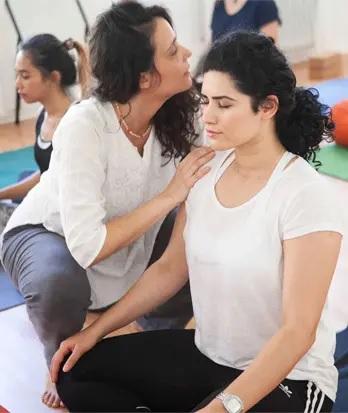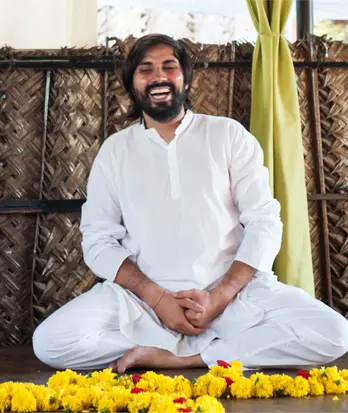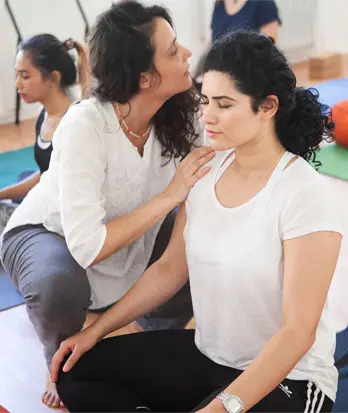Are you passionate about yoga and ready to share its transformative power with others? Pursuing a Yoga Alliance certification could be your key to unlocking a fulfilling career as a yoga instructor. In this article, we'll explore what a Yoga Alliance certification entails, why it's important, and how you can embark on this enriching journey.
What is Yoga Alliance Certification?
Yoga Alliance is an internationally recognized organization that sets standards for yoga teacher training programs and certifies individuals as yoga instructors. Attaining a Yoga Alliance certification demonstrates that you have completed a comprehensive training program and have met certain criteria set by the organization.
Why is Yoga Alliance Certification Important?
Credibility: Yoga Alliance certification enhances your credibility as a yoga instructor. It assures potential students that you have received proper training and adhere to professional standards.
Quality Education: Certified programs approved by Yoga Alliance offer a well-rounded education in yoga philosophy, anatomy, teaching methodology, and more. This ensures that you are equipped with the knowledge and skills needed to teach yoga safely and effectively.
Career Opportunities: Many yoga studios and fitness centers prefer hiring instructors who hold Yoga Alliance certification. Having this credential can open up doors to employment opportunities and collaborations within the yoga community.
Professional Development: As a certified yoga instructor, you gain access to continuing education opportunities and resources provided by Yoga Alliance. This allows you to further expand your knowledge and refine your teaching skills throughout your career.
How to Obtain Yoga Alliance Certification:
Choose a Registered Yoga School (RYS): Look for yoga teacher training programs that are registered with Yoga Alliance. These programs must meet certain standards regarding curriculum, teaching faculty, and hours of instruction.
Complete a 200-Hour or 300-Hour Training Program: Most Yoga Alliance-certified programs offer either a 200-hour or 300-hour training course. The 200-hour program is typically suitable for aspiring instructors, while the 300-hour program is designed for those who wish to deepen their practice and teaching skills.
Fulfill Requirements: To earn your certification, you'll need to fulfill all the requirements set by the training program, including attending classes, completing assignments, and participating in teaching practicums.
Submit Application: Once you have successfully completed your training program, you can submit an application for Yoga Alliance certification. This usually involves providing proof of your training hours and paying a certification fee.
Maintain Certification: After obtaining your Yoga Alliance certification, you'll need to maintain it by fulfilling continuing education requirements every few years. This ensures that you stay updated with the latest developments in the field of yoga and maintain your skills as an instructor.
Earning a Yoga Alliance certification is not only a significant milestone in your yoga journey but also a testament to your commitment to the practice and teaching of yoga. Whether you aspire to teach yoga professionally or simply deepen your understanding of this ancient discipline, pursuing certification can be a deeply rewarding experience. So, if you're ready to take the next step towards sharing the gift of yoga with others, consider embarking on the path to becoming a certified yoga instructor through Yoga Alliance.
Flexibility and Convenience
One of the most significant advantages of opting for an online yoga teacher course is the flexibility it offers. Traditional, in-person training may require you to rearrange your schedule or even relocate. However, with online courses, you have the freedom to study at your own pace and fit your learning around your existing commitments. Whether you’re a busy professional, a parent, or someone with a full schedule, online yoga teacher training allows you to pursue your passion without disrupting your life.
Comprehensive Curriculum
Contrary to what some may believe, online yoga teacher courses offer a comprehensive curriculum that covers all aspects of yoga teaching. From yoga philosophy and anatomy to asana sequencing and teaching methodology, you’ll receive a well-rounded education that equips you with the knowledge and skills necessary to become an effective and confident instructor. Many reputable online programs are designed by experienced yoga educators and accredited by recognized yoga alliances, ensuring that you receive quality instruction.
Interactive Learning Experience
Advancements in technology have made online learning more engaging and interactive than ever before. Through live-streamed classes, virtual workshops, and interactive forums, you’ll have ample opportunities to connect with instructors and fellow students, ask questions, and receive feedback on your progress. Additionally, many online yoga teacher courses include practical teaching exercises and mentorship programs to help you hone your teaching skills and build confidence in guiding others through yoga practice.
Cost-Effective Option
Online yoga teacher training often proves to be a more cost-effective option compared to in-person courses. Without the need to cover expenses such as travel, accommodation, and facility fees, online programs typically offer more affordable tuition rates, making yoga teacher certification accessible to a wider range of individuals. Furthermore, some online platforms offer flexible payment plans or scholarship opportunities, further reducing the financial barrier to entry.
Considerations Before Enrolling
While online yoga teacher certification courses offer numerous benefits, there are certain considerations to keep in mind before enrolling:
Self-Motivation: Online learning requires a certain level of self-discipline and motivation. Be prepared to manage your time effectively and stay committed to your studies.
Technology Requirements: Ensure that you have access to a reliable internet connection and the necessary technology (e.g., computer, webcam) to participate in online classes and complete course assignments.
Accreditation: Research the accreditation status of the program and ensure that it meets the standards set by reputable yoga alliances, such as Yoga Alliance or International Association of Yoga Therapists.
Practical Experience: While online courses provide theoretical knowledge, gaining practical teaching experience is essential for becoming a proficient yoga instructor. Seek opportunities to practice teaching in-person classes or workshops under the guidance of experienced mentors.
For More Info:-
200 hour yoga teacher training
200 yoga teacher training
200h yoga teacher training





